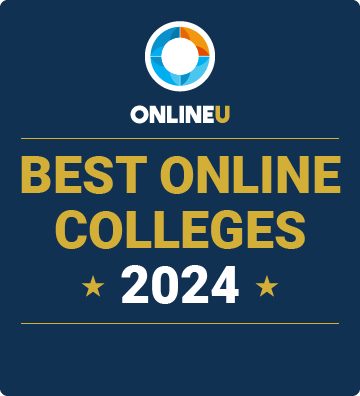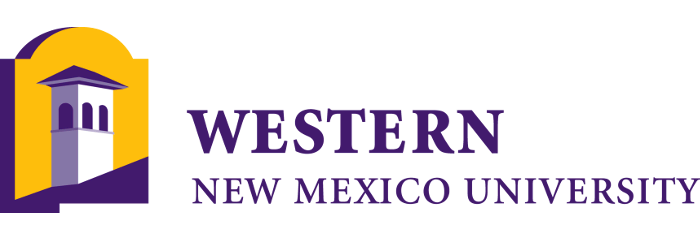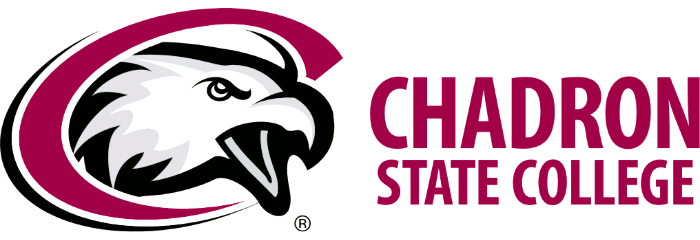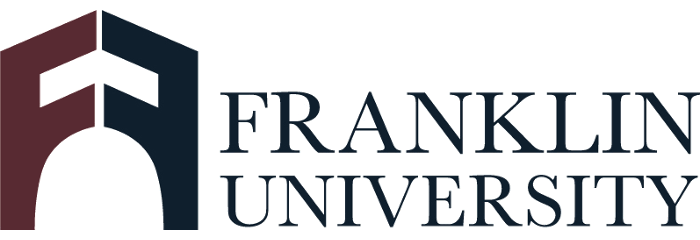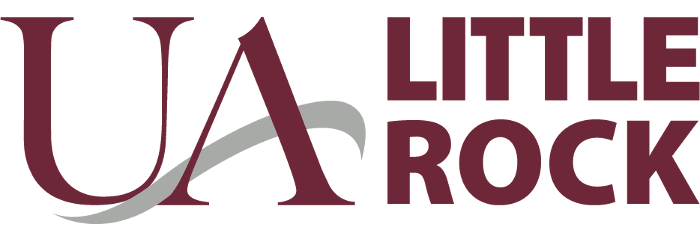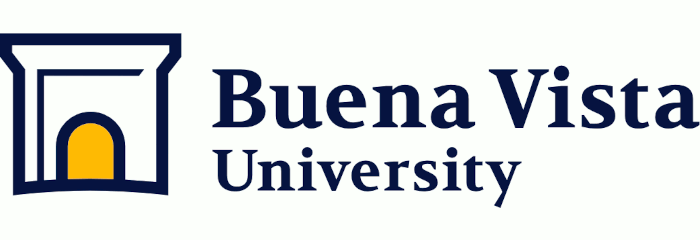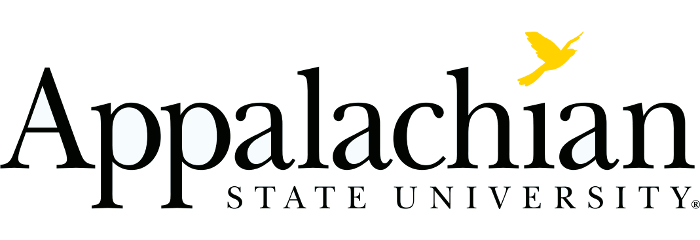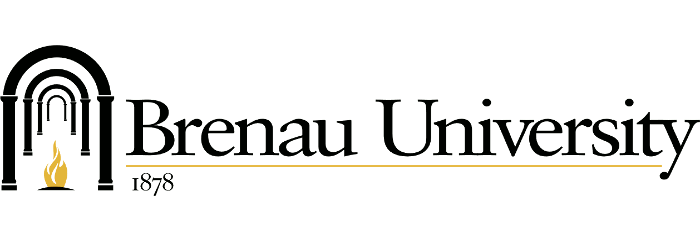2024 Best Online Secondary Education Degrees
ON THIS PAGE
Overview What's Next? Cost FAQsOnline secondary education degrees offer a flexible and accessible pathway for individuals who aspire to become educators. These programs are designed to prepare prospective teachers with the knowledge, skills, and strategies needed to inspire and educate middle and high school students.
Our rankings list of the best online secondary education degrees prioritizes schools with high Salary Scores and significant online enrollment, aiming to guide prospective students to make the most informed decisions. View our methodology for more details about our list, or learn about OnlineU. If you are ready for the next level of school, check out our list of the most affordable online master's degrees in secondary education.
#1 Chaminade University of Honolulu Chaminade University of Honolulu Chaminade University of Honolulu Chaminade University of Honolulu
- Salary Score: A+
- Median Earnings: $50,979
- Online Enrollment: 285 enrolled
- Annual Tuition: $28,544
At Caminade University of Honolulu (CUH), students interested in learner development and learning styles for secondary students can pursue an online Bachelor of Science in Secondary Education. This bachelor's degree in secondary education is designed to help students foster positive relationship-building as educators. Some required courses in this program include Managing School Environments, Introduction to Exceptional Children, and Educational Psychology. The program also requires Seminar and Student Teaching courses.
Why we like them: Graduates of CUH’s program are eligible for licensure in the Aloha state of Hawaii. It has four licensure tracks: (1) English, (2) Social Studies, (3) Science, and (4) Mathematics.
- Salary Score: A+
- Median Earnings: $50,979
- Financial Aid Recipients: 100%
- Avg. Aid Package: $14,216
- Avg. Graduation Rate: 66%
- Retention Rate: 71%
- Recommend Rate: 100%
- School Type: Nonprofit (Private)
#2 Western New Mexico University Western New Mexico University Western New Mexico University Western New Mexico University
- Salary Score: A
- Median Earnings: $48,175
- Online Enrollment: 570 enrolled
- Annual Tuition: $14,287
At Western New Mexico University (WNMU), students interested in learning more about classroom management and assessment methods can pursue an online Bachelor of Arts or Science in Secondary Education. The curriculum for this bachelor's program includes classes entitled, Multicultural Education, Technology Integration in the Classroom, and Reading Skills Secondary Education. Students are required to complete secondary practice teaching and a seminar and then pass all PRAXIS tests.
Why we like them: WNMU has an open admissions policy, meaning that if you turn in all required application materials, you will be admitted into the university. We believe this process improves accessibility for many.
- Salary Score: A
- Median Earnings: $48,175
- Financial Aid Recipients: 94%
- Avg. Aid Package: $8,967
- Avg. Graduation Rate: 33%
- Retention Rate: 62%
- Recommend Rate: N/A
- School Type: Nonprofit (Public)
#3 Chadron State College Chadron State College Chadron State College Chadron State College
- Salary Score: A-
- Median Earnings: $46,161
- Online Enrollment: 534 enrolled
- Annual Tuition: $7,834
Chadron State College (CSC) offers an online Bachelor of Science in Education - Secondary (6-12, 7-12, PK-12, K-12). This online bachelor's degree in education with a concentration in secondary grades offers both Field Endorsement Programs and Subject Endorsement Programs, meaning you can specialize in a general field — like English or Mathematics — or a specific subject — like Biology or History. This major offers education courses that include Technology Resources for Learning, Assessment Foundations, and Differentiated Instruction for Diverse Classrooms.
Why we like them: At CSC, students use Canvas to access their coursework, which is asynchronous. This means you can work at your own pace and around other obligations, allowing for maximum flexibility. The program takes about four years to complete, with the last year being a “Professional Year” that includes a capstone course and teaching internship.
- Salary Score: A-
- Median Earnings: $46,161
- Financial Aid Recipients: 98%
- Avg. Aid Package: $8,480
- Avg. Graduation Rate: 44%
- Retention Rate: 72%
- Recommend Rate: 100%
- School Type: Nonprofit (Public)
#4 University of West Alabama University of West Alabama University of West Alabama University of West Alabama
- Salary Score: B
- Median Earnings: $44,018
- Online Enrollment: 1,099 enrolled
- Annual Tuition: $20,090
At the University of West Alabama (UWA), students may pursue teaching through an online Bachelor of Science in Special Education - Collaborative Teacher. The 127-credit degree offers teacher training for K-6/6-12 in special education classrooms. Core coursework includes Inclusive Practices for Students with Low Incidence Disabilities, Introduction to Special Education, Collaborative Teaching, Effective Classroom Management and Organization, and Measurement and Assessment. Internships and field experiences are also required. Upon completing this program, you'll receive a certification from the Alabama State Department of Education to work as a teacher for K-12 students.
Why we like them: UWA offers a mentor collective program for one-on-one training with a professional teacher. This part of the program is beneficial not only to aspiring teachers but also to current teachers hoping to expand their network of industry contacts.
- Salary Score: B
- Median Earnings: $44,018
- Financial Aid Recipients: 99%
- Avg. Aid Package: $9,291
- Avg. Graduation Rate: 37%
- Retention Rate: 69%
- Recommend Rate: 71%
- School Type: Nonprofit (Public)
#5 Western Governors University Western Governors University Western Governors University Western Governors University
- Salary Score: N/A
- Median Earnings: $38,529
- Online Enrollment: 107,952 enrolled
- Annual Tuition: $8,010
Western Governors University (WGU) offers several Bachelor of Science degrees for Secondary Education. These science and math bachelor's degrees lead to licensure and teaching at various levels. Some of the curriculum includes Demonstration Teaching, a Cohort Seminar, and a Professional Portfolio. All programs offer classes in their specific concentrations as well as teaching classes, such as Educational Technology for Teaching & Learning, Secondary Reading Instruction & Interventions, and Fundamentals of Diverse Learners. Some programs send students laboratory equipment to assist with their coursework at home.
Why we like them: WGU offers five online bachelor's degrees in education at the secondary level, including four with varying science emphases and one that focuses on mathematics. We believe this allows you to narrow down your field of interest while earning your teacher certification.
- Salary Score: N/A
- Median Earnings: $38,529
- Financial Aid Recipients: 61%
- Avg. Aid Package: $4,798
- Avg. Graduation Rate: 49%
- Retention Rate: 65%
- Recommend Rate: 70%
- School Type: Nonprofit (Private)
#6 Liberty University Liberty University Liberty University Liberty University
- Salary Score: N/A
- Median Earnings: $31,860
- Online Enrollment: 34,799 enrolled
- Annual Tuition: $11,700
Students at Liberty University (LU) with an interest in teaching English have the opportunity to take an online Bachelor of Education in Middle Education - English (Licensure). This degree aims to provide skills in communication and adolescent education. The curriculum features courses such as Teaching Reading to Diverse Learners, Behavioral and Individual Differences, and Introduction to Education and Classroom Technology. There are also 90 hours of required practicum experience and one semester of student-teaching experience.
Why we like them: Once you graduate from this program, you'll receive a licensure endorsement to teach in Virginia schools. You may also apply for reciprocal licenses in another state. Graduates may seek jobs as homeschool teachers, curriculum coordinators, and K-12 teachers.
- Salary Score: N/A
- Median Earnings: $31,860
- Financial Aid Recipients: 98%
- Avg. Aid Package: $12,471
- Avg. Graduation Rate: 62%
- Retention Rate: 79%
- Recommend Rate: 57%
- School Type: Nonprofit (Private)
#7 Franklin University Franklin University Franklin University Franklin University
- Salary Score: N/A
- Median Earnings: N/A
- Online Enrollment: 4,314 enrolled
- Annual Tuition: $9,577
Franklin University offers aspiring teachers an online Bachelor of Science in Adolescence to Young Adult Education (7-12). Students in this program learn middle school- and high school-level teaching practices through fundamental education and professional coursework. The curriculum incorporates classes in Education in Diverse Society, Applying Educational Psychology to Instruction, and Classroom Assessment. Students seeking their Ohio teaching license must also complete a student-teaching field experience.
Why we like them: Franklin has sought additional accreditation for this program through the Council for the Accreditation of Educator Preparation (CAEP). This ensures students receive quality instruction that's been evaluated by third-party organizations. Graduates can aspire to careers as middle school and high school teachers.
- Salary Score: N/A
- Median Earnings: N/A
- Financial Aid Recipients: 31%
- Avg. Aid Package: $7,398
- Avg. Graduation Rate: 42%
- Retention Rate: 50%
- Recommend Rate: 68%
- School Type: Nonprofit (Private)
#8 University of Arkansas at Little Rock University of Arkansas at Little Rock University of Arkansas at Little Rock University of Arkansas at Little Rock
- Salary Score: N/A
- Median Earnings: $38,208
- Online Enrollment: 2,723 enrolled
- Annual Tuition: $18,957
The University of Arkansas at Little Rock (UALR) students have the opportunity to pursue teaching through an online Bachelor of Science in Education in Middle Level Education. This program aims to equip students with the credentials to teach grades 4-8. Within this program, students can anticipate courses that develop adolescent teaching skills, such as Supporting Struggling Readers, Introduction to Middle Education, and Child Growth and Development. At least 100 hours of supervised teaching experience is also required.
Why we like them: Having the flexibility to choose the focus of your concentration courses provides a tailored and personalized learning experience. This freedom allows you to align your studies with your passions, career goals, and areas of interest, fostering a deeper engagement with the material. Whether you prefer language arts, math, science, or social studies, this customizable approach empowers you to shape your education according to your strengths and aspirations, enhancing both academic satisfaction and future career prospects.
- Salary Score: N/A
- Median Earnings: $38,208
- Financial Aid Recipients: 99%
- Avg. Aid Package: $10,494
- Avg. Graduation Rate: 42%
- Retention Rate: 75%
- Recommend Rate: 83%
- School Type: Nonprofit (Public)
#9 University of North Carolina at Wilmington University of North Carolina at Wilmington University of North Carolina at Wilmington University of North Carolina at Wilmington
- Salary Score: N/A
- Median Earnings: $41,584
- Online Enrollment: 2,375 enrolled
- Annual Tuition: $21,858
At the University of North Carolina at Wilmington (UNCW), students interested in secondary teaching can pursue an online Bachelor of Arts in Middle Grades Education. There are 88 major credits required that prepare graduates to teach grades six to nine. Students engage in a professional core featuring practical classroom instruction techniques and an academic concentration in either language arts, math, science, or social studies. Professional courses include Psychological Foundations of Teaching, Instructional Technology, and Middle School Programs and Practices.
Why we like them: You'll receive a dedicated advisor to help you prepare for your teacher's license. This individual will be present throughout your degree to help you make decisions as you work towards your field experience. Students must also complete at least 80 hours of field experience in three middle schools before participating in internships.
- Salary Score: N/A
- Median Earnings: $41,584
- Financial Aid Recipients: 74%
- Avg. Aid Package: $6,217
- Avg. Graduation Rate: 74%
- Retention Rate: 83%
- Recommend Rate: 88%
- School Type: Nonprofit (Public)
#10 Central Methodist University Central Methodist University Central Methodist University Central Methodist University
- Salary Score: N/A
- Median Earnings: $31,597
- Online Enrollment: 1,469 enrolled
- Annual Tuition: $17,050
Students enrolled at Central Methodist University (CMU) can study middle and high school teaching through an online Bachelor of Science in Education - Secondary Education. This program offers several routes to completion. Social science and technology/engineering majors will complete a BS in education and a minor in their chosen subject, while others will complete a minor in education and a major in their chosen subject (biology, chemistry, math, etc.). All options require classes such as Foundations of Education, Education Technology, Classroom Behavior Management, and field experience in a real classroom. Upon graduation, individuals may seek employment as professional teachers in public and private schools.
Why we like them: You can choose how you want to pursue your education. From the subjects you focus your major on to the way you participate in your field experience. You can take on a two-year teacher assistant position instead of meeting the regular student-teacher requirements.
- Salary Score: N/A
- Median Earnings: $31,597
- Financial Aid Recipients: 100%
- Avg. Aid Package: $18,044
- Avg. Graduation Rate: 51%
- Retention Rate: 42%
- Recommend Rate: 86%
- School Type: Nonprofit (Private)
#11 University of New Hampshire College of Professional Studies University of New Hampshire College of Professional Studies University of New Hampshire College of Professional Studies University of New Hampshire College of Professional Studies
- Salary Score: N/A
- Median Earnings: $40,167
- Online Enrollment: 1,392 enrolled
- Annual Tuition: $9,150
The University of New Hampshire College of Professional Studies (UNH CPS) offers students interested in secondary education an online Bachelor of Science in Math Studies (Teacher Certification Options). This degree prepares students to earn their New Hampshire teacher certification. This is accomplished through courses such as Students with Disabilities, Special Education Law, and Managing Student Behavior. Five majors are available: (1) Elementary Education/General Special Education, (2) General Special Education, (3) Middle Level, (4) Middle Level/General Special Education, and (5) Upper Level. Graduates may go after teaching roles in elementary and middle schools.
Why we like them: Earning credits for past college-level learning offers a unique opportunity to accelerate your degree completion by recognizing the knowledge and skills gained through professional, military, and volunteer experiences. This not only saves you time but also reduces the overall cost of education. Additionally, it promotes a more inclusive and flexible education system, catering to individuals with diverse learning backgrounds and emphasizing the value of experiential learning in higher education.
- Salary Score: N/A
- Median Earnings: $40,167
- Financial Aid Recipients: 92%
- Avg. Aid Package: $5,318
- Avg. Graduation Rate: 15%
- Retention Rate: 40%
- Recommend Rate: 56%
- School Type: Nonprofit (Public)
#12 Buena Vista University Buena Vista University Buena Vista University Buena Vista University
- Salary Score: N/A
- Median Earnings: $39,878
- Online Enrollment: 664 enrolled
- Annual Tuition: $38,644
Buena Vista University students seeking to become versatile educators can learn an online Bachelor of Education in Secondary Education. The program is designed to help students get certified to teach at the middle or high school level. Teaching areas include English, History, Psychology, and Special Education, among others. Some examples of coursework include History of American Education, Instructional Technology and Innovative Teaching, and Standards, Assessment and Instruction for Engaged Learning.
Why we like them: This program emphasizes hands-on learning experiences, including virtual fieldwork and student teaching opportunities. It prepares students to become effective educators who are equipped to meet the diverse needs of secondary school students. Graduates are prepared to teach middle and high school students and develop curriculum and programming.
- Salary Score: N/A
- Median Earnings: $39,878
- Financial Aid Recipients: 100%
- Avg. Aid Package: $33,703
- Avg. Graduation Rate: 58%
- Retention Rate: 76%
- Recommend Rate: 89%
- School Type: Nonprofit (Private)
#13 Appalachian State University Appalachian State University Appalachian State University Appalachian State University
- Salary Score: N/A
- Median Earnings: $40,033
- Online Enrollment: 644 enrolled
- Annual Tuition: $23,454
Students at Brenau University with an interest in teaching grades 4-8 have the option to pursue an online Bachelor of Science in Middle Grades Education. This education program is structured to equip individuals with experience in teaching methodologies, technologies, and strategies for middle school classrooms. Course offerings include School and Society, Introduction to Multicultural Education, and Classroom Management. Additional coursework is based on two chosen concentrations from English, language arts, math, science, reading, and social studies. Students must also complete a one-semester student-teaching experience.
Why we like them: Once all required coursework is completed, you'll be prepared to pass the Georgia Assessments for the Certification of Educators exam to earn your teaching certification. Graduates are positioned for careers as middle school teachers.
- Salary Score: N/A
- Median Earnings: $40,033
- Financial Aid Recipients: 70%
- Avg. Aid Package: $7,443
- Avg. Graduation Rate: 75%
- Retention Rate: 83%
- Recommend Rate: 87%
- School Type: Nonprofit (Public)
#14 Brenau University Brenau University Brenau University Brenau University
- Salary Score: N/A
- Median Earnings: N/A
- Online Enrollment: 638 enrolled
- Annual Tuition: $32,685
Students at Brenau University with an interest in teaching grades 4-8 have the option to pursue an online Bachelor of Science in Middle Grades Education. This education program is structured to equip individuals with experience in teaching methodologies, technologies, and strategies for middle school classrooms. Course offerings include School and Society, Introduction to Multicultural Education, and Classroom Management. Additional coursework is based on two chosen concentrations from English, language arts, math, science, reading, and social studies. Students must also complete a one-semester student-teaching experience.
Why we like them: Once all required coursework is completed, you'll be prepared to pass the Georgia Assessments for the Certification of Educators exam to earn your teaching certification. Graduates are positioned for careers as middle school teachers.
- Salary Score: N/A
- Median Earnings: N/A
- Financial Aid Recipients: 98%
- Avg. Aid Package: $22,146
- Avg. Graduation Rate: 46%
- Retention Rate: 55%
- Recommend Rate: 89%
- School Type: Nonprofit (Private)
#15 Midway University Midway University Midway University Midway University
- Salary Score: N/A
- Median Earnings: N/A
- Online Enrollment: 347 enrolled
- Annual Tuition: $25,050
Midway University students pursuing high school teaching can enroll in an online Bachelor of Arts in Secondary English Education (8-12). This degree is designed to build critical thinking skills alongside fundamental subjects taught in high school classrooms. There are two online options to choose from: English and mathematics. Included in the core requirements are classes like Technology in the Educational Setting, Educational Evaluation Techniques, and Disciplinary Literacy. Students must also complete 140 hours of field experience.
Why we like them: Option 9 is a new state law that allows Kentucky bachelor's students to complete their field experience for initial teacher certifications in non-teaching positions at select schools. MidwayU has Option 9 agreements with five Kentucky school districts. Graduates may seek their Kentucky teaching certification to become high school teachers.
- Salary Score: N/A
- Median Earnings: N/A
- Financial Aid Recipients: 100%
- Avg. Aid Package: $17,934
- Avg. Graduation Rate: 50%
- Retention Rate: 74%
- Recommend Rate: 100%
- School Type: Nonprofit (Private)
#16 Saint Mary-of-the-Woods College Saint Mary-of-the-Woods College Saint Mary-of-the-Woods College Saint Mary-of-the-Woods College
- Salary Score: N/A
- Median Earnings: $41,028
- Online Enrollment: 274 enrolled
- Annual Tuition: $32,700
Interested secondary education students at Saint Mary-of-the-Woods College (SMWC) can take an online Bachelor of Science in Education - Kindergarten-Grade 6/Mild Intervention. This online secondary education bachelor's degree aims to produce teaching skills for classrooms of general education and exceptional needs. This program teaches students how to use the latest education technologies, laws, intervention methods, and applications. Classes include Assessment for Learning, Understanding Mild Disabilities, and Language Arts for the Diverse Classroom. Field experience and student-teaching semesters are also required.
Why we like them: This degree is approved by the Indiana Department of Education and meets all Rules for Educator Preparation and Accreditation. By completing this program, you'll earn a dual teacher license. Graduates can explore career paths as K-6 teachers in public and private schools.
- Salary Score: N/A
- Median Earnings: $41,028
- Financial Aid Recipients: 100%
- Avg. Aid Package: $26,438
- Avg. Graduation Rate: 52%
- Retention Rate: 67%
- Recommend Rate: N/A
- School Type: Nonprofit (Private)
#17 Arizona Christian University Arizona Christian University Arizona Christian University Arizona Christian University
- Salary Score: N/A
- Median Earnings: N/A
- Online Enrollment: 124 enrolled
- Annual Tuition: $31,650
Arizona Christian University (ACU) is a small, private university that offers an online Bachelor of Science in Secondary Education, which includes specialization options in business, language arts, history, math, and science. Students with a full-time schedule can complete their secondary education degree in four years. Education courses in this major include Tests & Measurements, Educational Psychology, and Classroom Management.
Why we like them: This program requires Directed Student Teaching and a Secondary Education capstone course, both of which provide graduates with teaching experience before they pursue careers in education. The goal of the curriculum is to help students become successful teachers. Potential careers can involve working with youth in various church, parachurch, and nonprofit organizations.
- Salary Score: N/A
- Median Earnings: N/A
- Financial Aid Recipients: 100%
- Avg. Aid Package: $19,174
- Avg. Graduation Rate: 46%
- Retention Rate: 60%
- Recommend Rate: 100%
- School Type: Nonprofit (Private)
ADVERTISEMENT
Online Secondary Education Bachelor's Degrees You May Be Interested In
Annual Tuition: $11,700
6 Programs ( view all )
Annual Tuition: $17,800
3 Programs ( view all )
Annual Tuition: $8,010
7 Programs ( view all )
Why Trust Us?
27 Data Researchers
60,000 Degrees Researched Annually
20,000 Hours Spent on Research Annually
Launching Rankings Since 2009
